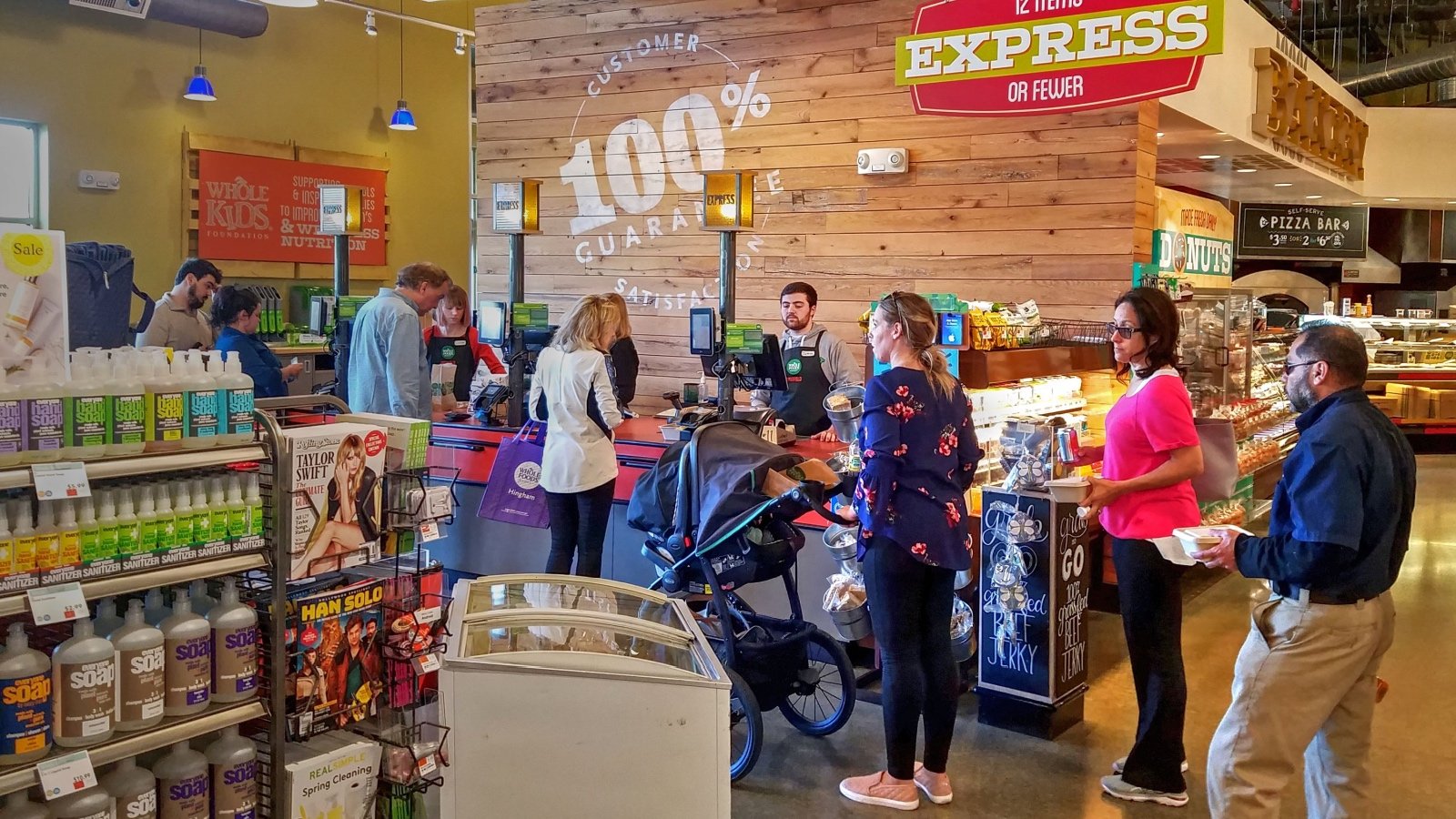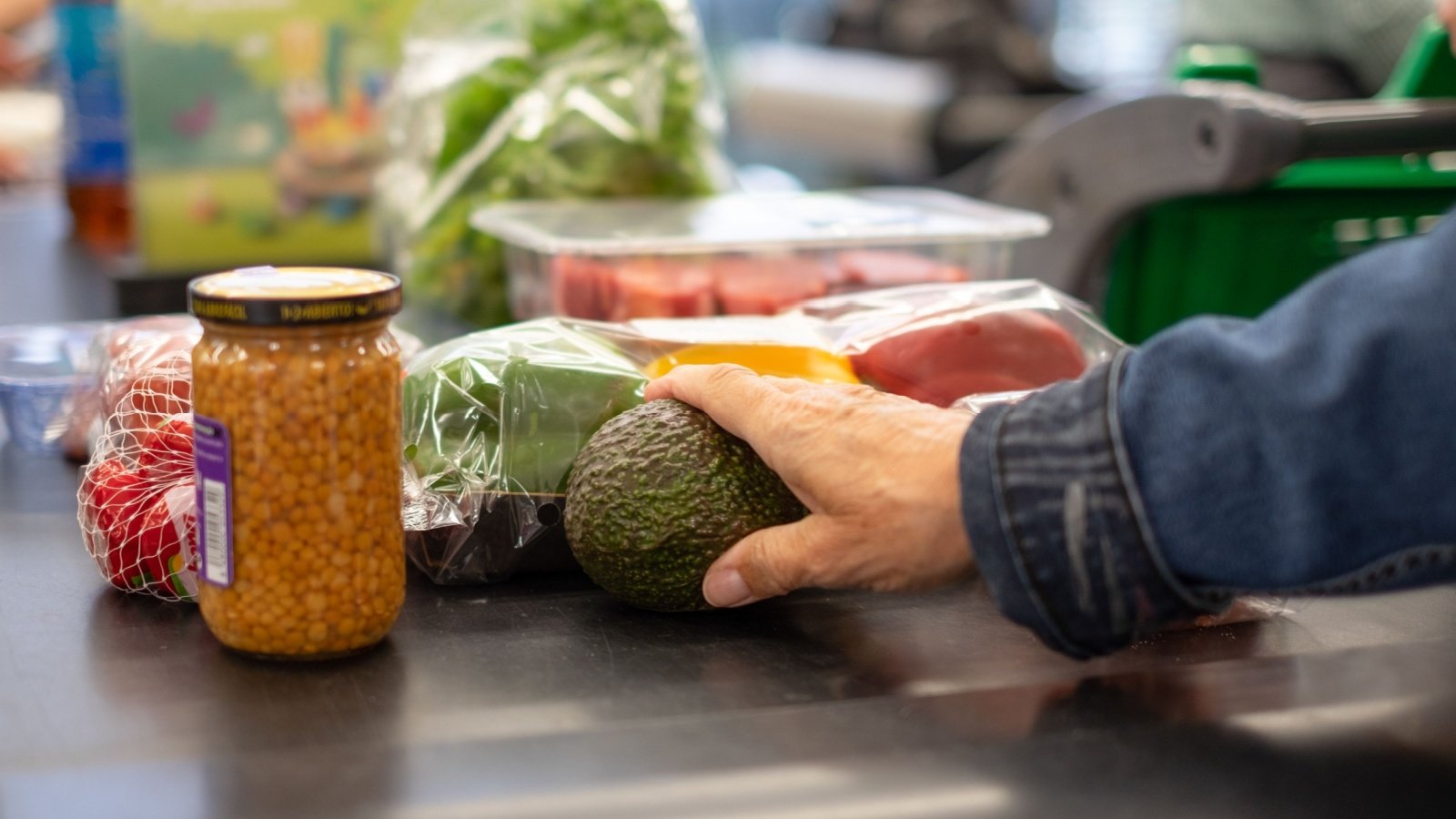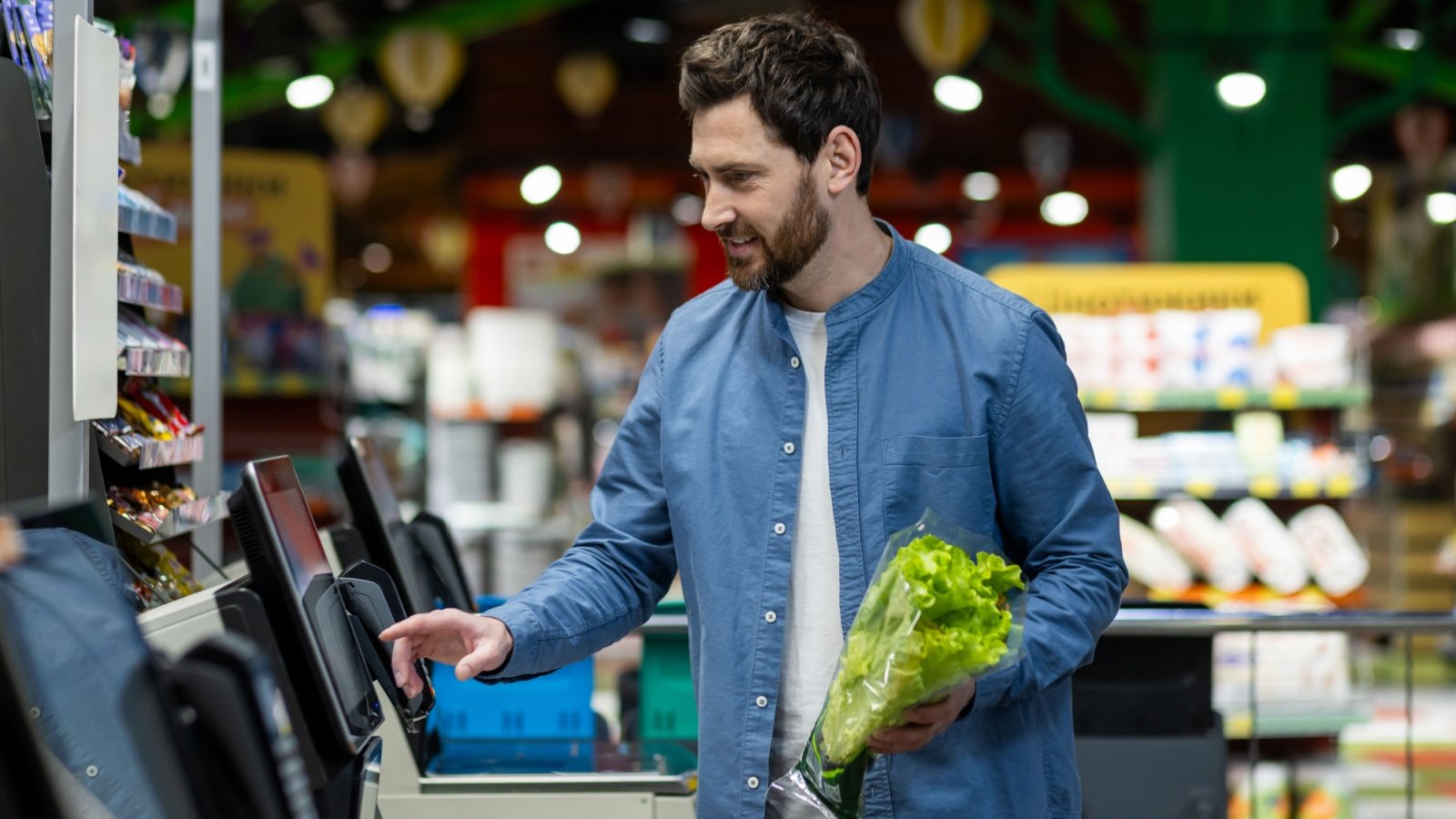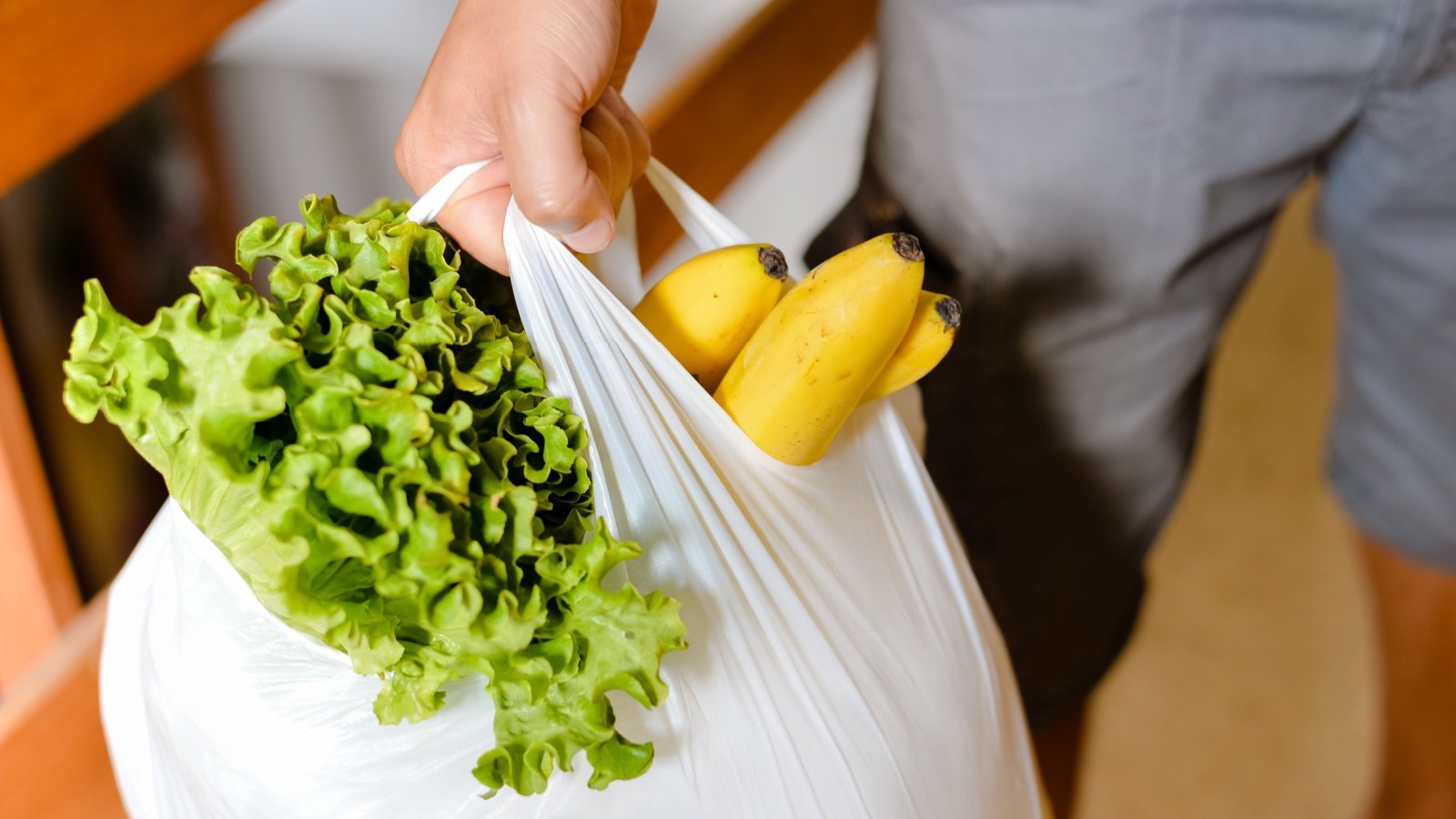Navigating the grocery store is a daily task for many, yet it’s filled with subtle etiquettes that are often overlooked. Behaviors like blocking aisles with carts or talking loudly on phones can disrupt the shopping experience for others.
Recognizing these nuances can make grocery shopping more pleasant and respectful for everyone involved.
Let’s guide you through the most common yet unspoken actions that may be considered rude by fellow shoppers.
Blocking Aisles

People often stop their carts in the middle of aisles, making it difficult for others to pass. This not only disrupts the flow of traffic but also causes frustration among shoppers. A little awareness and consideration can keep aisles clear and shopping pleasant for everyone.
Leaving Perishables Out

When shoppers decide against buying perishable items like dairy or frozen foods and leave them on regular shelves, it can lead to food spoilage. This not only wastes food but also increases costs for the store. Returning items to their proper place preserves resources and respect for both the product and other shoppers.
Squeezing Produce

Excessively squeezing fruits and vegetables can bruise them, rendering them unsellable and contributing to food waste. Gentle handling ensures that produce remains in good condition for other shoppers. It’s important to choose with your eyes first and handle with care.
Leaving Carts Anywhere

Abandoning shopping carts in the parking lot or scattered throughout the store can cause inconvenience and even damage vehicles. Returning carts to designated areas helps keep the store orderly and safe. This small effort can significantly enhance everyone’s shopping experience.
Bringing Too Many Items to Express Lane

Using the express lane when you clearly have more items than the limit is inconsiderate to those who have chosen fewer items for a quicker checkout. This can delay the process for everyone behind you. Observing the rules makes the express lane efficient.
Not Controlling Children

Allowing children to run around or disrupt other shoppers can create a chaotic environment. It’s important to keep an eye on children to ensure they are safe and not infringing on others’ space. Everyone appreciates a calm and organized store.
Misplacing Items

Leaving items in random places, especially if they are temperature-sensitive, can cause spoilage and unnecessary restocking efforts. Properly placing items back where they belong or handing them to a store employee can reduce waste and labor. It’s a simple step that maintains store efficiency and cleanliness.
Using Handicapped Parking Without Need

Parking in handicapped spaces without a legitimate need deprives those who truly require closer access. These spots are designed to aid those with mobility issues. Respecting parking regulations demonstrates consideration for the needs of all shoppers.
Refusing to Reuse Bags

Refusing to reuse bags or not bringing reusable bags contributes to environmental waste. Many stores offer bag recycling programs or incentives for bringing your own bags. Embracing these eco-friendly practices shows respect for the environment and reduces waste.
Cutting Through Checkout Lines

Cutting through checkout lines instead of walking around them disrupts the flow and invades the space of those in line. This behavior is often viewed as rude and can create unnecessary tension. Respecting the space and order of the checkout lines maintains harmony and respect among shoppers.
Overloading the Conveyor Belt

Overloading the conveyor belt at checkout can create confusion and slow down the bagging process. Properly organizing your items and spacing them out can help the cashier and baggers operate more efficiently. Cooperation from shoppers leads to quicker and more organized checkouts.
Not Acknowledging Staff

Failing to acknowledge the presence or greetings of staff members can make the shopping experience seem impersonal and rude. A simple smile or greeting can go a long way in fostering a positive environment. Respect and acknowledgment can enhance the morale of employees and improve the overall shopping experience.
Ignoring Recycling Opportunities

Many stores provide recycling bins for plastics and other materials, yet some shoppers ignore these opportunities. Utilizing these facilities helps reduce waste and supports the store’s sustainability efforts. Participating in in-store recycling initiatives is a responsible shopping practice.
Pushing Past People

Pushing past people in aisles or near displays without an “excuse me” disrupts the shopping experience and can seem aggressive. A simple acknowledgment or waiting a moment for space can prevent feelings of rudeness. Patience and politeness in navigating store aisles keep the environment pleasant for all.
Parking in Two Spaces

When drivers occupy two parking spaces, they reduce available parking for other shoppers, especially during busy times. Parking considerately ensures that everyone has access to convenient parking. Mindful parking practices demonstrate respect for fellow shoppers and help everyone access the store more easily.
Ignoring Checkout Lines

Jumping ahead in checkout lines or sneaking into a shorter line is not only unfair but also disrespectful to those waiting their turn. This behavior can lead to confrontations and a negative atmosphere at the store. Patience and respect for the queue can ensure a smoother checkout process for all.
Loud Phone Conversations

Holding loud phone conversations in grocery stores distracts and often annoys other shoppers. The store is a public space where personal conversations should be kept discreet. Lowering your voice helps maintain a more peaceful shopping environment.
Not Cleaning Up Spills

Ignoring spills or messes you’ve made and not notifying staff can lead to accidents or further messes. Alerting a store employee immediately can prevent injuries and ensure the store remains clean. Taking responsibility for accidents helps maintain a safe shopping environment.
Sampling Grapes

Some shoppers sample grapes or other loose items without buying, treating the produce section as a free buffet. This is not only technically stealing but also disrespectful to others who purchase that produce. Paying for produce before consuming it is the respectful way to shop.
Returning Used Items

Returning items that have been used, especially when they’re not defective, places an unnecessary burden on the store. It’s unfair to other shoppers who may unknowingly purchase these returned goods and reflects poorly on one’s integrity. Honest communication about returns can prevent this form of abuse and maintain quality and trust.
Taking Too Many Free Samples

Taking more than a reasonable share of free samples, especially when it’s clear others are waiting, is inconsiderate. Free samples are provided as a courtesy and should be enjoyed by as many customers as possible. Moderation allows everyone a chance to try the products.
Unnecessary Haggling

Trying to haggle prices in a non-negotiable pricing environment like a grocery store holds up lines and frustrates staff. Accepting displayed prices ensures transactions are smooth and timely. Grocery stores are not marketplaces; prices are fixed for efficiency.
Complaining Loudly About Prices

Voicing dissatisfaction about prices loudly in the aisles can create a negative shopping atmosphere. While frustration about costs might be valid, it’s more effective to address concerns directly with store management or through customer feedback channels. Constructive feedback is more likely to lead to change.
Excessive Couponing During Rush Hours

Using a large number of coupons or holding complex transactions during peak shopping times can significantly slow down the checkout process. Planning such activities during off-peak hours can minimize disruption and maintain a smoother flow at checkouts. Consideration of others’ time enhances the community shopping experience.
Mocking Products or Customers

Mocking products in the store or making fun of other customers’ choices can be hurtful and create a hostile shopping environment. This behavior detracts from the inclusive, respectful atmosphere that stores strive to maintain. Respecting diverse tastes and preferences enriches everyone’s shopping experience and fosters a community of respect and tolerance.








